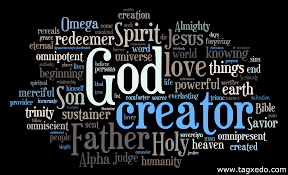O give thanks to the God of gods, for his steadfast love endures for ever. O give thanks to the Lord of lords, for his steadfast love endures for ever; to him who alone does great wonders, for his steadfast love endures for ever. Ps. 136:2-4 (NRS)
Does God still do great wonders today? When we read the Bible, it’s hard to ignore the mighty wonders of God in Creation, The Exodus, and His plan of salvation. His wonders are clearly demonstrated from Genesis to Revelation, as He reveals Himself to His creature, man.
I choose to differentiate between God’s wonders and His miracles. I view miracles as God’s favor demonstrated in a particular incident, circumstance, or time. Wonders, on the other hand, include all the acts of God’s goodness and greatness, transcending time and circumstance.
Psalm 136 is entitled, “A Litany of God’s Wonders”. In each verse, the Psalmist captures the wonders of God in the history of Israel. The Psalmists begins and ends this psalm by declaring the need to give thanks for God’s mercy. Mercy (checed) is translated as “favor and loving kindness.” It is in the context of His mercy that God’s wonders are performed. In verse 4, the Psalmist reminds us of two key facts.
God alone does wonders. It is in the remembrance of God’s wonders that He sought Israel’s faithfulness and trust. That remembrance of God’s wonders is even more critical for us today as we tend to minimize God’s ability and glorify man’s accomplishments.
God’s mercy endures forever. God lives in eternity and therefore, is not limited to the confines of “time”. God’s forever includes both “chronological time” and “the social times” in which we find ourselves. God’s mercy, favor, and loving kindness are always available.
While God has done great wonders in the past, He is still doing wonders today. Perhaps we miss God’s wonders in our lives by crediting them to luck or as happenstance. Perhaps we attribute His wonders to our own abilities or to our social networks and connections. All the above are foolish thinking. It is God alone Who stands ready to “show Himself strong” on behalf of man (2 Chronicles 16:9).
It has been said that we are one generation away from losing our belief in God. The result is a country that minimizes the supernatural power of the Most Holy God. One minister observed, “Man has humanized God and deified himself.” Let us continue to share the many wonders of God–those in the Bible and in our lives. This includes the greatest wonder of all, our salvation.
As I view our nation and the challenges we face, it is evident that our future lies not in political leadership, technological breakthrough, nor financial health. We’ve tried them all. Our future lies with “the God of gods, the Lord of lords; to Him who alone does great wonders” (Ps. 136:4).







